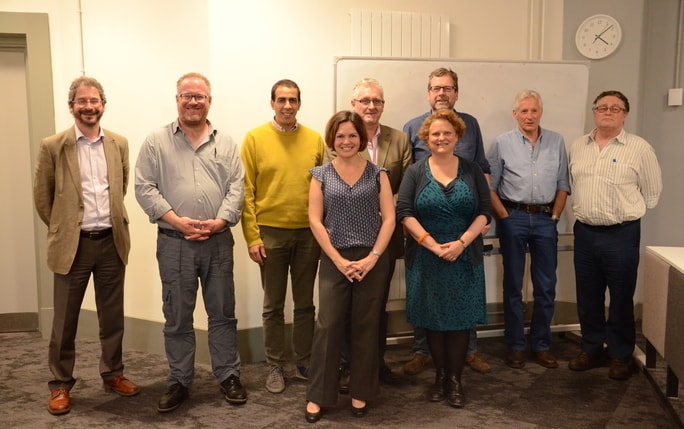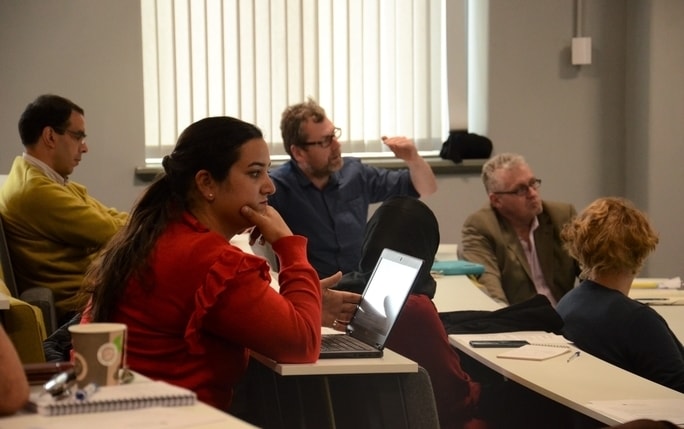Management School holds conference on Corruption in Latin America

Latin American corruption was front and centre at a one day workshop held in the Management School on Thursday 31 May.
The University of Liverpool Latin and Hispanic Studies (LAHS) held the event to facilitate the development of multi-disciplinary research within the topic of corruption in Latin America.
Guest speakers at the workshop included; Professor David Whyte, Professor of Socio-legal studies in the School of Law and Justice at the University of Liverpool; Professor Alan Doig, Visiting Professor at Newcastle Business School and Northumbria University; Dr Neil Pyper, Associate Head of the School of Strategy and Leadership at Coventry University; Dr Marieke Riethof, Lecturer in Latin America Politics at the University of Liverpool; Professor Yacine Belghitar, Professor of Finance at Cranfield School of Management; Professor Paul Heywood, Sir Francis Hill Professor of European Politics, Faculty of Social Sciences at the University of Nottingham; and Martin Whitehead, Qualified Accountant.
Also part of the programme were the conference organisers, Dr Jannine Poletti Hughes, Senior Lecturer in Accounting and Finance and Co-Founder of LAHS and Professor David Hojman, Professor of Economics and International Business and Co-Founder of LAHS.
Professor Alan Doig commented, “The disjuncture between the rhetoric of anti-corruption, the objectives of donors’ anti-corruption work and practice on the ground has potentially led to unintended consequences and deviant development trajectories. The emergence of new agendas will exacerbate these trends and re-asserting a revised (and more relevant) anti-corruption agenda will not be an easy process, and nor will it substantively affect practice on the ground for some time to come."
Professor David Hojman said, “The word 'corruption' is often used all around the world, although unfortunately with different cultural, ethical, legal and political implications, from Latin America to the UK to South East Asia. This workshop represented a unique opportunity to concentrate on some of the recent scandals in the Western Hemisphere, from the Panama papers to Brazilian examples with international dimensions (Mensalao, Lava Jato, Petrobras, Odebrecht), from Mexico City to Santiago, in order to, first, separate meanings and definitions, and second, identify what actually works in terms of controlling and defeating some particularly damaging forms of corruption.”
